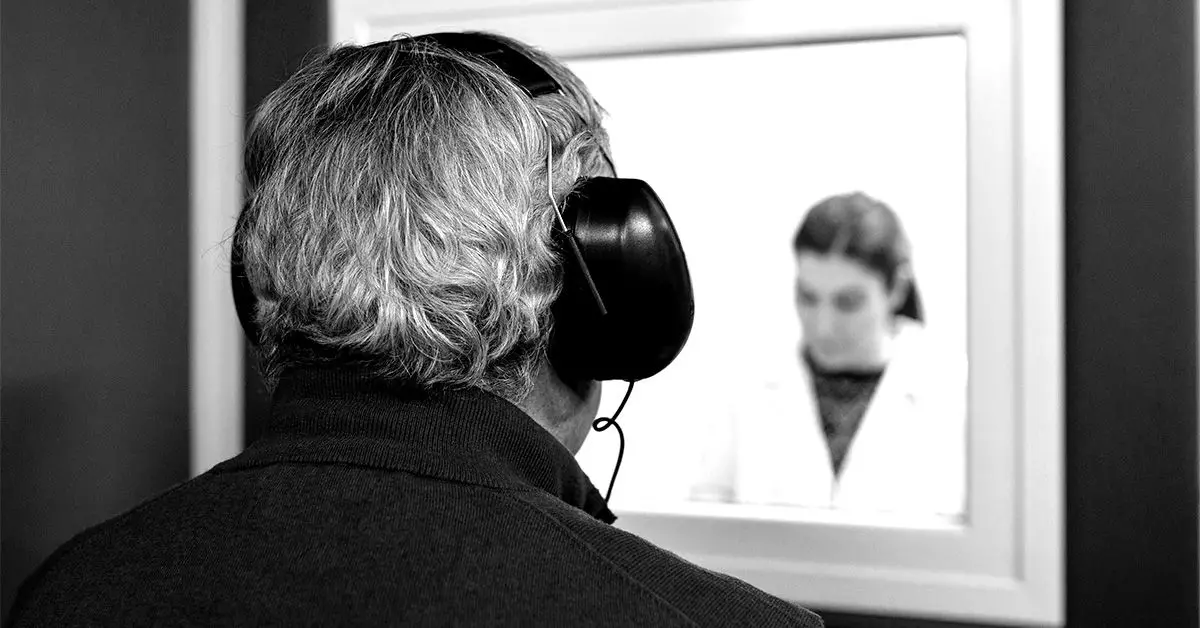Hearing loss is not just a minor inconvenience; it presents a profound public health issue, particularly as we navigate an increasingly aging global population. Research indicates that nearly a third of individuals over the age of 60 experience some form of hearing loss. This silent epidemic is more than just an auditory challenge; it is intricately linked to cognitive decline and, alarmingly, an elevated risk of dementia. The alarming statistics suggest that as our population grows older, so too does our collective vulnerability to age-related cognitive impairments.
Over the years, various studies have pointed to a notable correlation between hearing loss and cognitive decline, which can escalate into more serious conditions such as dementia. A pivotal study by researchers at the Johns Hopkins Bloomberg School of Public Health sheds light on this burgeoning concern. The findings reveal that both moderate and mild hearing loss significantly increase the risk of developing dementia among older adults—by approximately 17% and 16%, respectively. This has led advocates in the medical field to propose that treating hearing loss could not only improve individual quality of life but also serve as a proactive measure in dementia prevention.
A Deeper Understanding of the Connection
The association between hearing loss and dementia calls for a nuanced understanding of how auditory deprivation can affect cognitive health. It is postulated that diminished auditory stimuli can lead to reduced brain engagement, fostering an environment ripe for social isolation and cognitive stagnation. Neurologist Steven Allder emphasizes that when hearing is impaired, the brain allocates additional cognitive resources to compensate for missing auditory information. This reallocation can diminish the brain’s capability to manage other critical functions, including memory, ultimately accelerating cognitive decline.
The implications of these findings are profound. The brain, much like a muscle, requires stimulation to remain healthy. A reduction in auditory input may foster changes in brain structure over time, contributing not only to cognitive decline but also to deteriorating mental health outcomes. The interplay between hearing and cognitive function elevates the importance of regular hearing assessments, ideally starting in midlife, to catch these changes early.
The Power of Prevention: Early Detection and Intervention
With the distressing reality that two-thirds of seniors in a recent study reported clinically significant hearing loss, there exists a clear call to action. Early detection through routine hearing evaluations could serve as an invaluable tool in mitigating the risk of dementia. The standardization of these assessments in healthcare settings could pave the way for timely interventions, which may include hearing aids and other assistive technologies.
The research points to the necessity of a proactive healthcare approach for older adults. Addressing hearing loss has the potential to improve not just auditory functions, but also the cognitive processes that underpin quality of life. Addressing hearing impairments could prevent or delay the onset of dementia, leading to broader implications for healthcare policies designed for aging populations.
Bridging the Gap: Enhancing Communication and Well-being
While the latest findings underscore the clear association between hearing loss and dementia, the pending question remains: does treating hearing loss actually reduce dementia risk? The ACHIEVE trial has provided some insights, indicating that hearing aids can have a positive impact, particularly for those already at high risk for cognitive decline. However, such research is still in its infancy, and more extensive, randomized studies are necessary to establish a causal relationship.
Regardless of the ongoing debate, the overarching conclusion is indisputable: treating hearing loss can significantly enhance communication abilities and improve overall quality of life. It is imperative for older adults to discuss any hearing difficulties with their healthcare providers proactively. Timely intervention and management could yield immense benefits not only for auditory health but also for cognitive resilience and independent living.
Holistic Health: The Interconnected Nature of Sensory Impairments
Finally, as we delve deeper into the realm of auditory health, it is critical to approach potential risks in a holistic manner. Hearing impairments often coexist with vision loss in older populations. This intersectionality demands that we focus on the interrelationships between various sensory losses and how they together impact cognitive health. Researchers such as Jason R. Smith are advocating for future studies to explore the cumulative impact of multiple sensory impairments on dementia risk.
As we navigate the complexities of an aging society, prioritizing comprehensive sensory health assessments and interventions becomes essential. By embracing proactive healthcare practices that target both hearing and other sensory deficits, we can work towards preserving cognitive function and enriching the lives of older adults. In a world increasingly focused on managing chronic diseases, this approach offers a promising avenue for fostering a healthier, more engaged aging population.


Leave a Reply